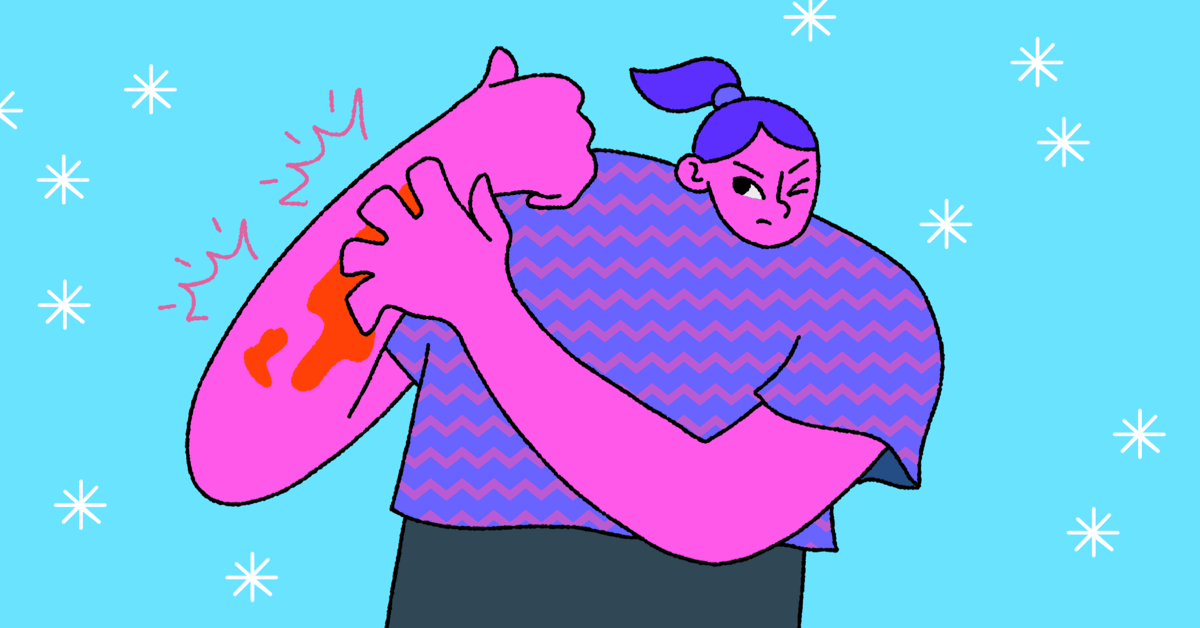HCV and Winter Skin
Hepatitis C can do weird things to your skin.
It’s one of those things that you wouldn’t even know about until you have to know about it. Usually, because you are experiencing it yourself.
Unfortunately, if that is the case and you are having dermatological symptoms of hepatitis C show up, you are experiencing a double whammy right now.
Having hepatitis C skin symptoms, and it's winter! Yuck!
We all know that winter is notorious for exacerbating already present skin conditions by causing extreme dryness and irritation. Heaping on any diverse ways hep C can present dermatologically is enough to overwhelm anyone.
So how do you get through this? That’s why I’m here!
What does hepatitis look like on the skin?
Well, that can vary from person to person. Some notable hepatitis-related skin conditions are: 1,2
- Chronic urticaria (chronic hives)
- Purpura (dark spotting on the skin)
- Lichen planus (swelling and irritation of the skin, hair, nails, and mucous membranes)
- Pruritus (itching skin)
When your skin feels itchy, is prone to ulcerations (spontaneous open wounds that dislike closing), and is swollen, painful winter can be something closer to hell than a white Christmas.
As a person who has been through the full gamut of hepatitis-C-related skin conditions (along with having atopic dermatitis – also known as eczema – to boot), I’ve come to share with you what I have found works to help minimize the discomfort winter brings.
Taking care of your skin this winter
The first thing you need to know is that there is a difference between hydration and moisturization regarding skincare. An easy way to understand the difference is that hydration products increase the overall content of water inside the skin cells. At the same time, moisturizers create a barrier against the skin to stop water from escaping from the inside.3
The specific hydration and moisturization products most effective for irritated, inflamed, and reactive skin are called occlusives. An occlusive is a type of moisturizer that belongs to a larger family known as emollients.
These are those barrier-creating products I mentioned earlier. Lanolin, argan oil, and beeswax are all good examples of occlusive emollients, but there are many more.
My go-to resource for checking out the ingredients of skin care products is Paula’s Choice. They have a glossary that covers hundreds of ingredients and uses as plain language as possible to explain their origins, functions, benefits, and risks.4,5,6
When it comes to the skin symptoms I have experienced from hepatitis C, both pre-and post-treatment, I have found that finding relief is just as much about being willing to learn and experiment as it is about being disciplined in self-care practices.
The best combo I have found to combat irritated, uncomfortable hepatitis C skin symptoms during the winter is this:
- Drink eight glasses of water per day
- Cover up when you go outside
- Find a good barrier cream (remember – occlusives!)
What have you found works for helping your skin feel better in the winter? Let me know in the comments.

Join the conversation